Leadership Lessons From Michelle Obama’s Best-Selling Memoir
For at least an hour before Michelle Obama graced the stage at Barclays Center in Brooklyn in December 2018, just one stop on her tour to promote her book, “Becoming,” videos featuring her best moments played on the big screen.
A soulful playlist curated by Questlove blasted. The show was sold out. The 19,000-seat stadium had the energy of a rock concert. The message: Michelle Obama’s a larger-than-life woman with a life story and message to match. In swag shops outside the arena, her quote “When they go low, we go high” was emblazoned on shirts and hats and mugs.
The former first lady understands she has a unique and powerful platform. So, while her jab at President Trump and her vivid re-telling of her romantic courtship with President Obama have gotten the most attention, a careful read reveals that “Becoming” is a call to action.
Drawing on inspiration from her ordinary beginnings, Obama uses her story to inspire others to lead. Her book offers a blueprint for those who aspire to rise out of places that lack privilege and guidance.
Here are some of the leadership lessons from her new book that can help you navigate your career, relationships and life in general.
Lesson No. 1: Leadership Begins at Home
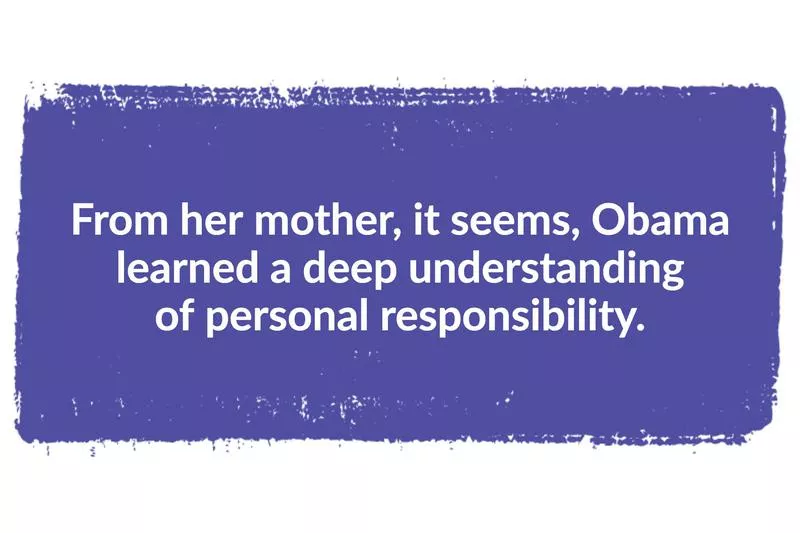
Michelle Obama was raised on Chicago’s South Side with modest means. Her father, Fraser, was a blue-collar worker, her mother, Marian, a stay-at-home mom. She gives full credit to her loving parents and the stable home they provided as the foundations of the lessons that emboldened her.
On stage, Obama spoke about her father’s deep commitment to her and her brother, Craig. She called on the fathers in the audience to be mindful of how they treat their daughters, never as possessions or delicate beings that need protection but as equal and capable members of the family.
She recalled that her father always taught her the same skills that he would teach her older brother. When he learned to catch baseballs, so did she. She also writes with pride and love about her father’s twenty-year tenure tending boilers for the city of Chicago.
“Even as his multiple sclerosis made it increasingly difficult for him to walk, he never missed a day of work,” she writes.
From her mother, it seems, Obama learned a deep understanding of personal responsibility. She and her brother were raised to become adults, not babies, according to Obama. All the important lessons of leadership — tenacity, dignity, resilience, commitment and worth ethic — Obama learned at home.
Lesson No. 2: The Greatest Lessons Are in Our Differences
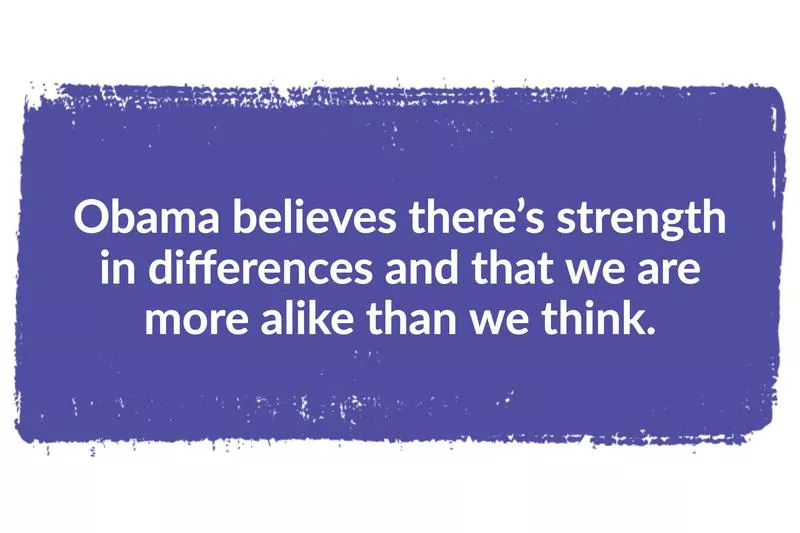
Whenever Obama is asked about the polarization and deep division in the United States, she insists she has experienced a completely different America. “It’s much harder to hate up-close,” she has said in many interviews. She believes there’s strength in differences and that we are more alike than we think.
“The problem is we don’t know each other, we don’t let each other in,” she writes in her book. In “Becoming,” she tells the story of her college friend, Suzanne, who was “Ernie to her Bert, Laverne to her Shirley.”
From Suzanne, she says she learned about joy and wild abandon. But also that there was more than one way to live a life. She spent no energy trying to change her friend’s more chaotic ways. Instead, she learned from her and, as a result, became a more well-rounded person.
Unifying any group of people is one of the biggest and most challenging tasks of a leader. Effective leadership, gleaned from Obama’s stories, means taking our differences and using them to make us stronger.
Lesson No. 3: Don’t Be Afraid to Swerve

Leaders in our technological and constantly changing age must learn how to adapt and evolve. Before she met her husband, the future president, Obama confessed to being a box-checker. She didn’t reflect so much on what she wanted to be as much as she just wanted to get things done.
While this commitment can lead to some success, when innovation and creative problem solving are needed instead, swerving becomes a necessary and important skill.
Obama credits her husband for teaching her how to swerve, to go off the beaten path in order to find your destiny. In swerving, she discovered another path that she could not have planned or envisioned.
Leadership is as much about accomplishments as it is about inspiration and imagination. If you’re hoping to get your team to tackle a big idea that requires unconventional methods, take a cue from the former first lady and get ready to swerve when circumstances call for it.
Lesson No. 4: Find Your Community
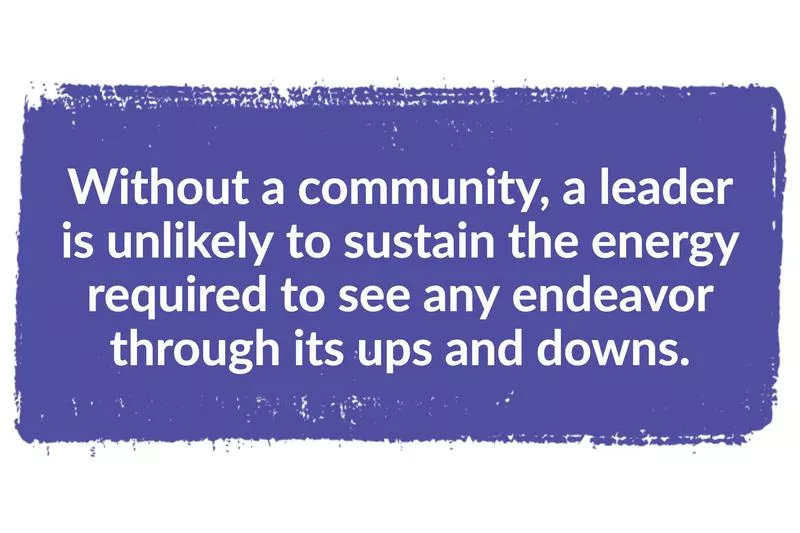
Obama learned early that you can’t do anything alone. She speaks fondly of mentors who helped her navigate the many bumps in her journey. In her book, she tells the story of a woman at Princeton who took Obama under her wing when Obama was a student there, giving her the space to find her footing in an environment that was foreign to her upbringing.
When deciding to switch careers mid-life she looked to mentors for guidance. She had a network of them that she had built throughout her working life. The mentors were sounding boards and sources wisdom when she faced big decisions.
While at the White House, Obama recalls pulling together retreats and boot camps for her girlfriends so she could let off steam in a safe and supportive environment. Without a community, a leader is unlikely to sustain the energy required to see any endeavor through its ups and downs.
It’s also unlikely that a leader can remain in power without the support of a community. Obama’s lesson is clear — gathering like-minded people who are invested in your success is crucial to a leader’s performance.
Lesson No. 5: Serve Your Community
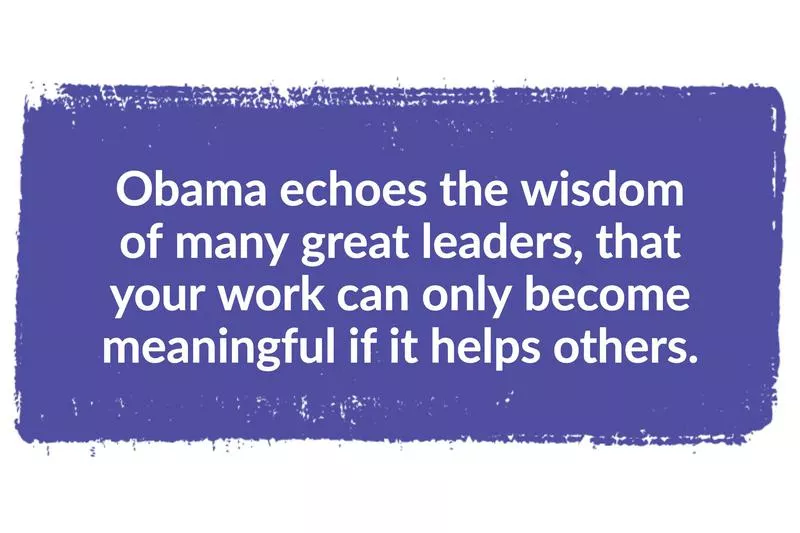
It says a lot about Obama’s popularity that she can fill thousands of seats in a stadium, at a ranging from $150 to $1300. But, to serve her community, she gives away 10 percent of the seats, often to young people making a difference in their community.
It’s just one of the many ways Obama tries to walk her talk. Since the early days of their relationship, when former President Obama was still a community organizer, serving the community has been at the center of their partnership.
Post-presidency, the couple started the Obama Foundation with a mission to spread civic engagement around the world. In her book, Obama writes about why she chose to open the White House to as many ordinary citizens as possible, even hosting kids from all walks of life for campouts and sleepovers. She wanted to make the White House the people’s house.
Obama echoes the wisdom of many great leaders, that your work can only become meaningful if it helps others. And only through meaning, can work rise above the mundane to become a calling. Having purpose can differentiate a weak leader from a strong one.
Lesson No. 6: Never Lose Your Integrity
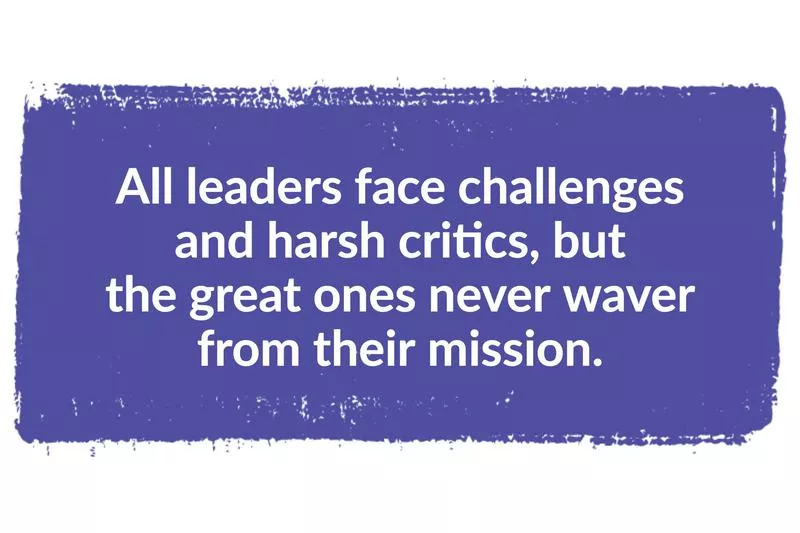
To be a leader is to experience risk, reward and criticism in their most extreme forms. The former first lady’s tenure at the White House was no different.
Her patriotism has been called into question. She’s been called names. Rumors swirled around her family, from the mundane to the extremely troubling. In her book, Obama writes about a lesson her mother taught her early in life that didn’t resonate until she was in her early forties, campaigning for her husband. A little boy punched her in the face when she was in first grade. When her mother met the boy, she told her daughter, “That boy was just scared and angry about things that had nothing to do with you.” It was a lesson in standing up for yourself when necessary, but mostly never letting another person’s action change or influence you.
All leaders face challenges and harsh critics, but the great ones never waver from their mission. In one of President Obama’s farewell speeches, he referred to his wife as the girl from the South Side, implying that their incredible journey has not changed who she is and what she believes in.
Leaders may gain popularity in many different ways, but often they earn respect through integrity.
Lesson No. 7: Lead by Example
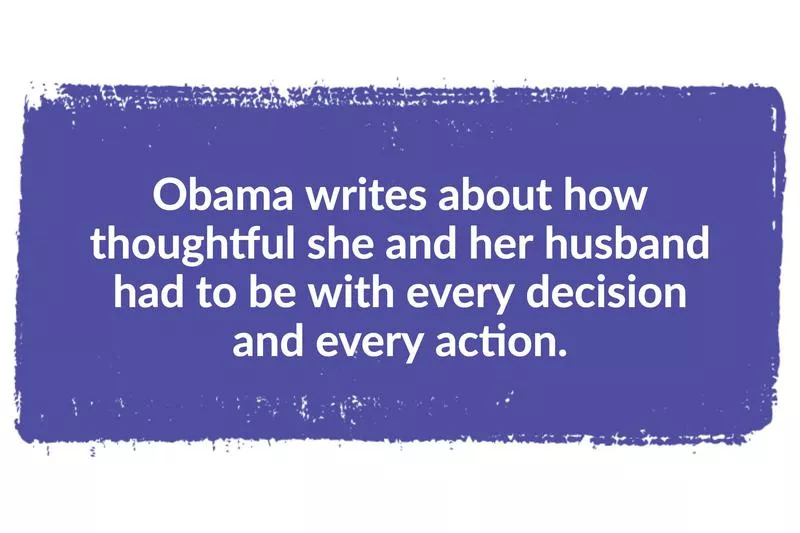
On the night of the 2016 election, Obama went to bed before the official results came in. By the time she woke up, Donald Trump had been elected president. Many on Obama’s staff, a diverse group of people that generally feared a Trump presidency, wept for the future.
“We had to be the moral compass for our staff first and foremost,” Obama said in an interview with Stephen Colbert, part a round of interviews she gave promoting her new book. Always for the Obamas it was about leading by example.
In her book, she talks about the high bar set for the first African American family in the White House. Rather than shirk from the expectations, they chose to meet them. Obama writes about how thoughtful and intentional they had to be with every decision and every action. They felt there was no room for mistakes.
Obama explains in her book that she and her husband embraced this responsibility in order to make sure they could keep the door they walked through open for generations to come.
Heavy-handed leadership has been an example of power throughout history, but the kind of power that seems the most sustainable is the one prescribed by Obama — lead by example.
Lesson No. 8: Eat Well and Exercise Regularly
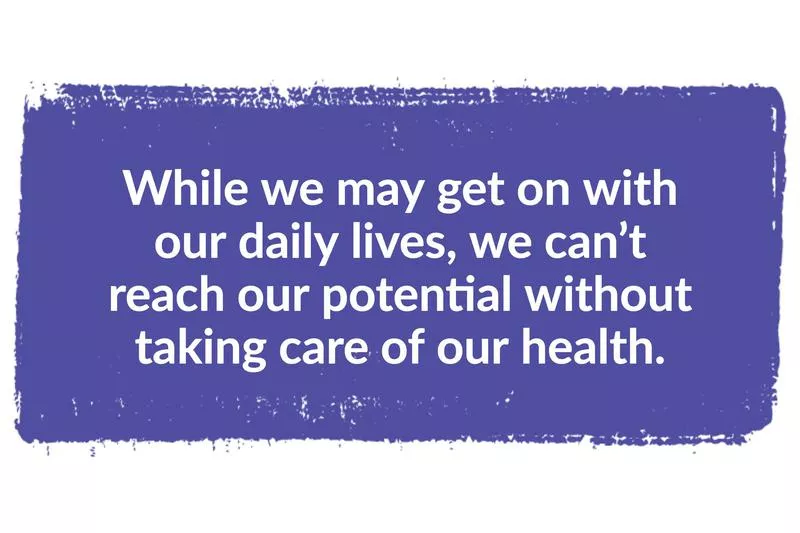
If there’s an image of Michelle Obama that could stand as the symbol of who she was in the White House, it would be one where she’s doing push-ups. In “Becoming,” she recalls zeroing in on a mission to advocate for healthy lifestyles when she sat down in her kitchen with a chef she hired to cook for her family, Sam Kass.
Kass was young, eager and full of ideas. Reluctant at first, she hired Kass in order to roll back the unhealthy habits that her family was falling into, as a result of an extremely busy lifestyle. While we may get on with our daily lives, completing tasks and showing up for work, according to Obama’s message, we can’t reach our potential without taking care of our health.
Her eight years in the White House were a testament to the importance of a healthy lifestyle for any leader. Despite her grueling schedule, the first lady didn’t seem to lose energy.
Boundless energy and a zest for a life that can come from a healthy lifestyle are obvious superpowers for leaders.
Lesson No. 9: Feed Your Potential
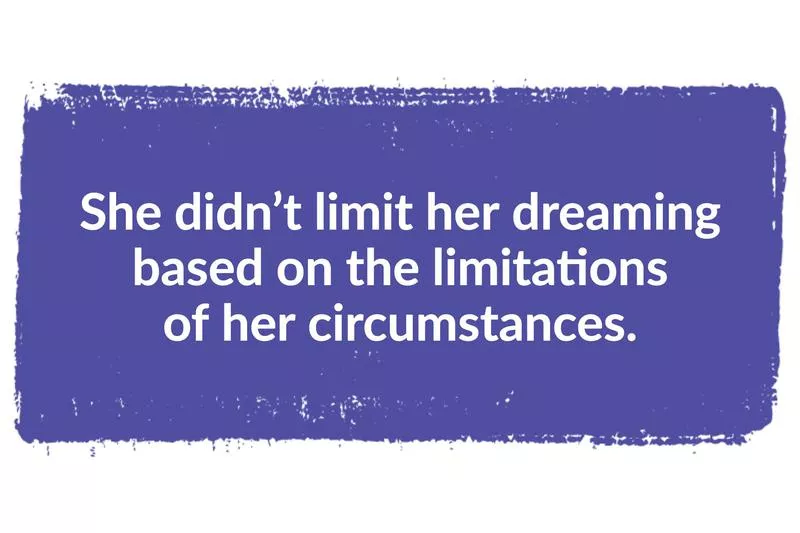
In Michelle Obama’s South Side home, there was plenty of love and stability and food in the fridge. But, outside of those provisions, Obama knew she had to work hard for everything else, including her Ivy League education.
She didn’t limit her dreaming based on the limitations of her circumstances. Neither did her family. Obama writes about an instance when she didn’t tell her parents about a school trip to Paris, coming to the conclusion that it would be too much money. When they found out, they sat her down and told her that this was not something she needed to decide for herself. Even on meager salaries, her parents found a way to pay for the trip.
The lesson is clear: Invest in your own potential.
Lesson No. 10: Expect Excellence
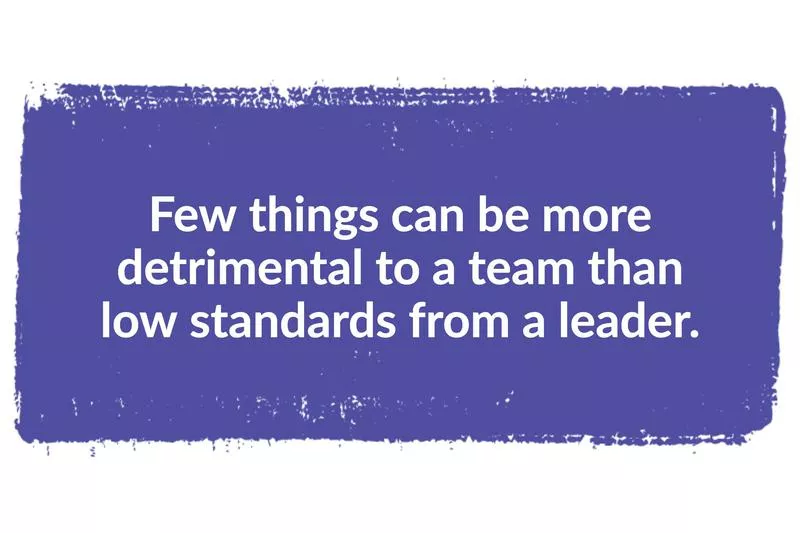
Obama may not have grown up in a fancy neighborhood, but it was clear, she writes in “Becoming,” that excellence was expected of her and her brother. Few things can be more detrimental to a team than low standards from a leader.
Obama’s upbringing, as detailed in her book, sets a great example of how to support excellence. She writes about gaining confidence to go to Princeton after seeing her brother succeed in the endeavor.
Her parents also taught their two children about having high standards and seeking it out in both people and life choices.
While Obama confesses in her book to wondering, “Am I good enough?” when she was young, it does seem that at every major milestone in her narrative she was able to answer that question with a resounding yes.
Leadership is often about self-mastery. In the pages of “Becoming,” Obama’s stories inspire people to strengthen their inner convictions, raise their standards and to work daily to meet them.
Lesson No. 11: Celebrate Small Victories
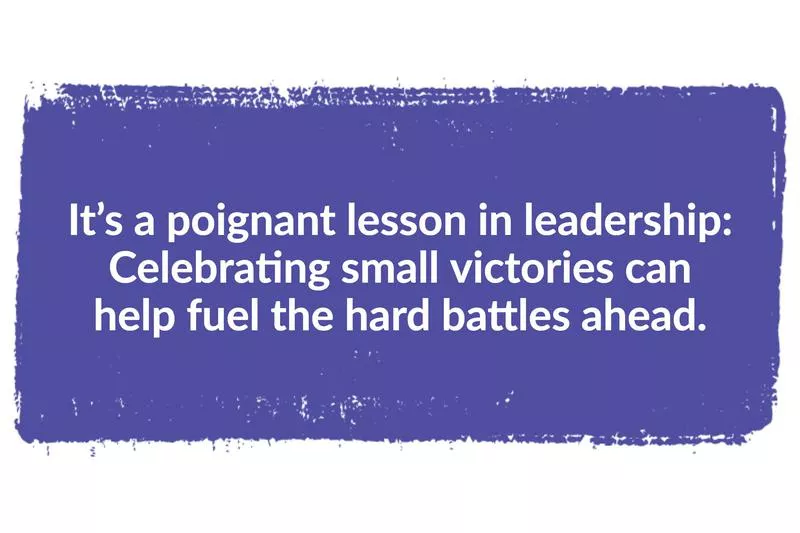
To celebrate the legalization of same-sex marriage, Obama snuck out of the White House with one of her daughters. She writes about having a tunnel vision plan to escape her Secret Service detail and celebrate with the people that had gathered in the streets.
It’s a fun story — she’s been getting a lot of mileage out of it on the talk-show circuit — but in it is a deeper lesson for anyone leading a team through stormy days or uphill battles. You must celebrate victories, big or small.
Obama says her small act of defiance was a response to a funeral they attended on the same day, where nine African Americans were murdered by a white supremacist who opened fire in their church. She writes about her feeling of desperation to join the celebration about same-sex marriage, if only to provide a brief reprieve from the heartbreaking tragedy that constantly touched their lives.
It’s a poignant lesson in leadership: Celebrating small victories can help fuel the hard battles ahead.
Lesson No. 12: Never Underestimate the Power of Warmth
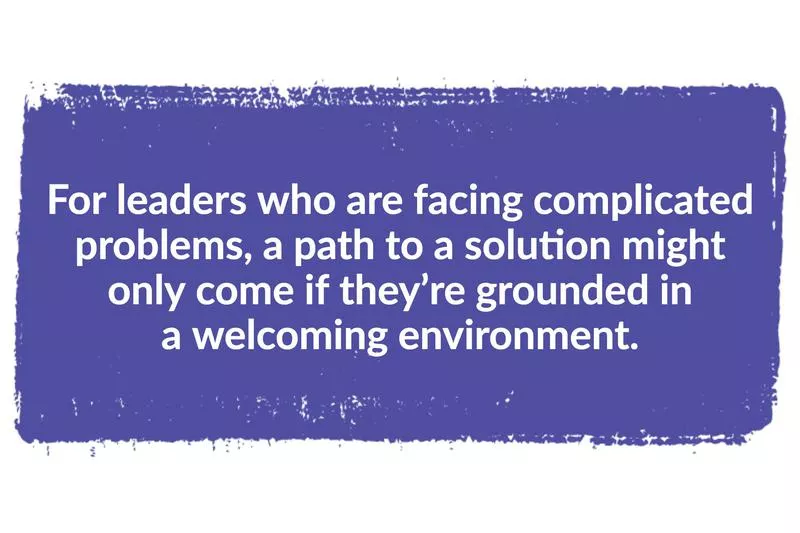
Leaders can get lost in the importance of their daily tasks. But for Obama, taking care of the big stuff meant also giving space for the warmth of the ordinary.
She describes in the book her family’s near daily routine of having dinner together, a time for easy banter and no policy talk. While the White House seemed intimidating at first, full of formality and opulence, Obama said she grew to appreciate the people who made the place run. Butlers and aides at the White House have been taking care of first families for decades.
“Life was better, always, when we could measure the warmth,” she writes. This could be translated as soft skills, intangible values that can add a lot depth to a leader or a team.
For Obama, keeping both feet on the ground meant daily interactions with the people around her. “These interactions were quick but in some small way they made life feel a little more normal,” she writes. For leaders who are facing complicated problems, a path to a solution might only come if they’re grounded in a welcoming environment, full of familiarity and warmth. That certainly seems to be the case for the former first lady.
Lesson No. 13: Own Your Story
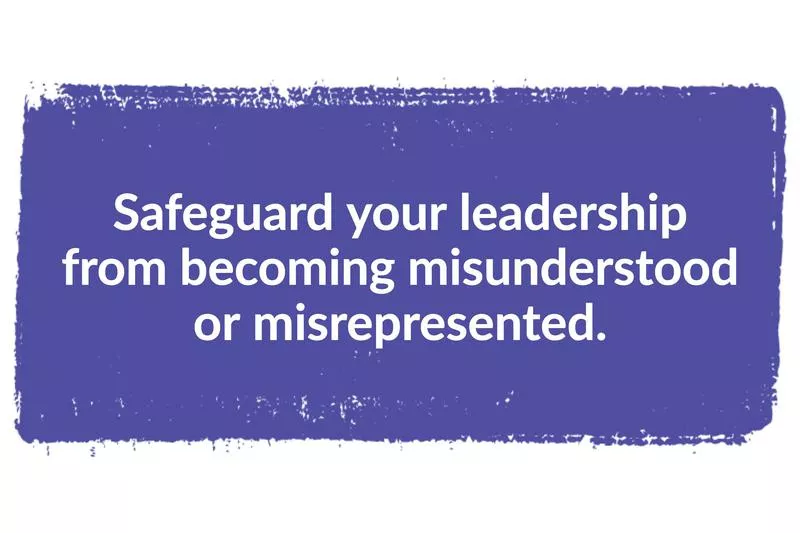
A powerful narrative can be the difference between a forgettable leader and one with lasting impact. President Barack Obama was a master storyteller, taking his personal story and turning it into an inspiring symbol for unity and progress.
His wife took notes.
“Becoming” barely hit the shelves and before earning honors as the best-selling book of 2018. Leaders can take note that a well-told story is one of the most powerful ways to connect to your audience, whether that’s your team or your customers.
Obama says she learned quickly that if she didn’t own her story, someone else would tell it for her. Sure enough, she describes in her book the multiple narratives in the media that didn’t accurately portray who she knew she was. The same thing can happen to leaders who are too busy to check in on what’s being said about them.
Owning your story means safeguarding your leadership from becoming misunderstood or misrepresented.
Lesson No. 14: Become

No one likes a stale or stagnant leader. How to counter this might just be the best lesson in Obama’s memoir.
Obama says she chose” Becoming” as the title of her book because she hated the idea that journeys are finite. She hated the question, “What do you want to be when you grow up?” To Obama, growing up isn’t an end destination.
Leaders can take a lot of insight and wisdom from this. In the information age, we no longer trust that there are guardians of knowledge, power and expertise. We are all just learning as we go along. Leaders who don’t accept this or try to hide from it might seem out of touch, feigning authority and appearing inauthentic.
At Barclays Center, Obama had a stadium full of people hanging on her every word. The stage was sparse, just Obama and long-time friend and poet Elizabeth Alexander talking about life. But it was a masterclass in leadership: Share your journey of becoming and others will want to follow. Or even better, walk alongside you.